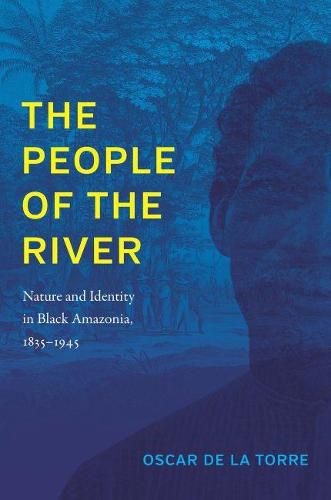Readings Newsletter
Become a Readings Member to make your shopping experience even easier.
Sign in or sign up for free!
You’re not far away from qualifying for FREE standard shipping within Australia
You’ve qualified for FREE standard shipping within Australia
The cart is loading…






In this history of the black peasants of Amazonia, Oscar de la Torre focuses on the experience of African-descended people navigating the transition from slavery to freedom. Drawing on social and environmental history, he connects the Amazonians intimately to their natural landscapes. Relying on the natural world as a repository for traditions, discourses, and strategies that they retrieved especially in moments of conflict, Afro-Brazilians fought for autonomous communities and developed a vibrant ethnic identity that supported their struggles over labor, land, and citizenship.
Prior to abolition, enslaved and escaped blacks found in the tropical forest a source for tools, weapons, and trade-but it was also a cultural storehouse within which they shaped their stories and records of confrontations with slaveowners and state authorities. After abolition, the black peasants’ knowledge of local environments continued to be key to their aspirations, allowing them to maintain relationships with powerful patrons and to participate in the protest cycle that led Getulio Vargas to the presidency of Brazil in 1930. In commonly referring to themselves by such names as
sons of the river,
black Amazonians melded their agro-ecological traditions with their emergent identity as political stakeholders.
$9.00 standard shipping within Australia
FREE standard shipping within Australia for orders over $100.00
Express & International shipping calculated at checkout
Stock availability can be subject to change without notice. We recommend calling the shop or contacting our online team to check availability of low stock items. Please see our Shopping Online page for more details.
In this history of the black peasants of Amazonia, Oscar de la Torre focuses on the experience of African-descended people navigating the transition from slavery to freedom. Drawing on social and environmental history, he connects the Amazonians intimately to their natural landscapes. Relying on the natural world as a repository for traditions, discourses, and strategies that they retrieved especially in moments of conflict, Afro-Brazilians fought for autonomous communities and developed a vibrant ethnic identity that supported their struggles over labor, land, and citizenship.
Prior to abolition, enslaved and escaped blacks found in the tropical forest a source for tools, weapons, and trade-but it was also a cultural storehouse within which they shaped their stories and records of confrontations with slaveowners and state authorities. After abolition, the black peasants’ knowledge of local environments continued to be key to their aspirations, allowing them to maintain relationships with powerful patrons and to participate in the protest cycle that led Getulio Vargas to the presidency of Brazil in 1930. In commonly referring to themselves by such names as
sons of the river,
black Amazonians melded their agro-ecological traditions with their emergent identity as political stakeholders.